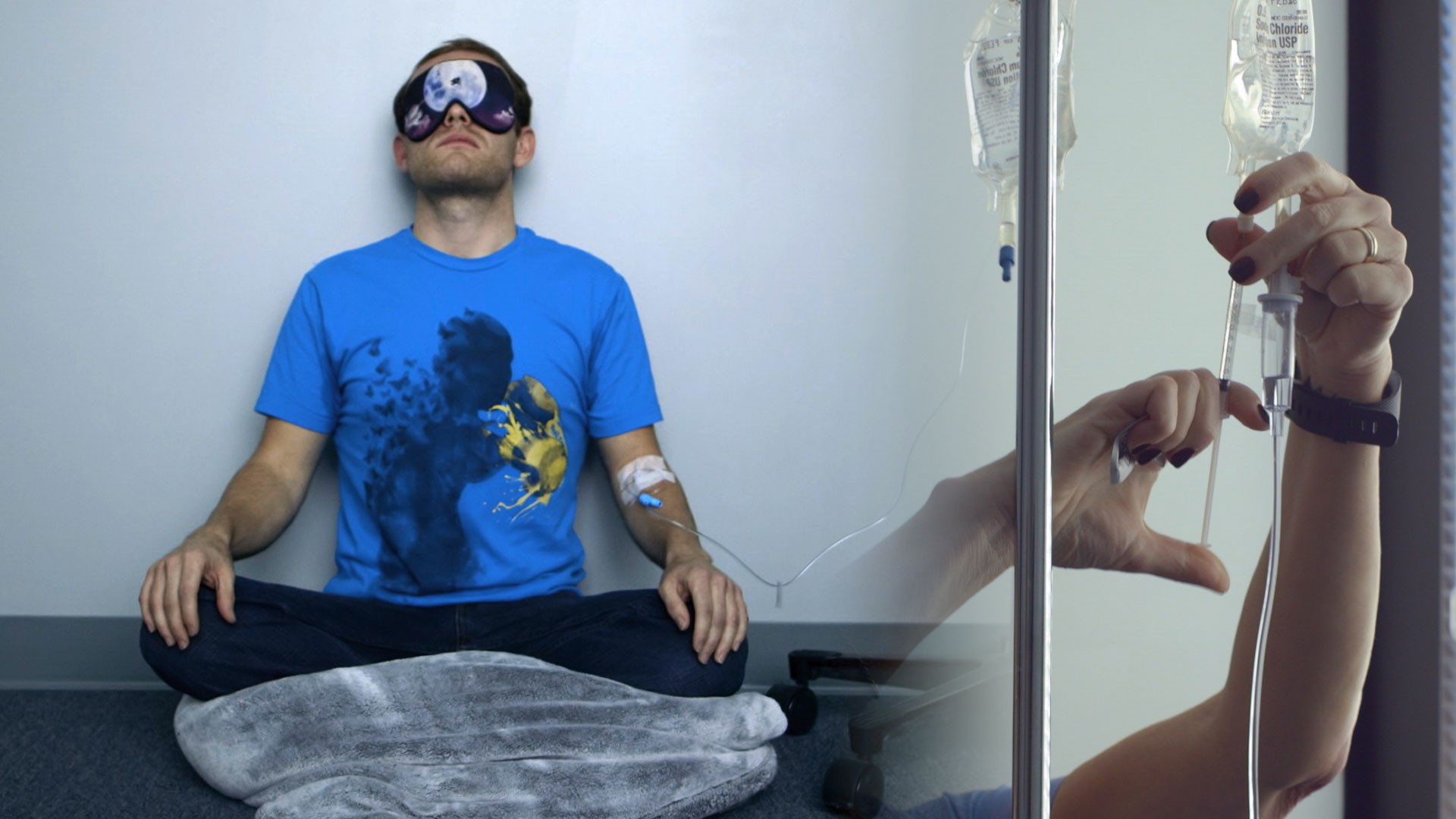AFP/Stringer
If you wake up every morning since the election of President Donald J. Trump to a feeling of dull, low-level dread, it's not just you. A new article suggests that "Trump anxiety" may already be hurting our health. Especially among marginalized groups, the current atmosphere of fear and hostility can lead to stress, increased risk for disease, babies born too early, and premature death."Elections can matter for the health of children and adults in profound ways that are often unrecognized and unaddressed," David R. Williams, lead author of the article, said in a statement. To qualify those effects, he and his co-author looked at a number of studies about how elections impact public health.Early research shows that Trump's election heightened hostility toward racial and ethnic minorities, immigrants, and Muslims. (Teachers, for example, are now having to discipline students who quote Trump to bully their classmates.) The authors point to a January 2017 national survey by the American Psychological Association which showed that a large proportion of US adults are stressed—but that the stress affects more Democrats than Republicans, and more minorities than non-Hispanic whites. With that stress comes all the attendant negative health effects.The authors also note a study on disease among high-prejudice counties. Where prejudice is high, both blacks and whites see an elevated risk of death from heart disease—but the effect is stronger among blacks than whites. (Similarly, living in segregated neighborhoods is linked to higher blood pressure.)
Watch more from Tonic:
Another study examined birth outcomes in the six months after 9/11, when hostility toward Arab-Americans pervaded the country. Using data from women of multiple racial and ethnic in California, it found only among Arab-American women a pattern of increased risk for low-birthweight babies or preterm births, compared to the six month before 9/11.These problems may sound fairly abstract—after all, it's hard to pin down the effects of free-floating, ambient hostility. But the authors also note that Trump has concrete plans for remaking our healthcare system, including the (eventual) repeal of the Affordable Care Act. Studies of similar cuts made early in the Reagan administration show increases in infant mortality, preventable childhood diseases, and chronic disease among adults. In other words, we, collectively, could be in for a bumpy ride.As to what can be done about election-related health problems, the authors suggest diagnosis is the first step to treatment. Recognize your patients' emotional distress, they say, and recommend psychotherapy or medication as needed. Doctors and healthcare organizations need to stand up against hate and the kind of political rhetoric that may be—literally—making their patients sick. And finally, there's the always-dependable need for more research: to better understand what the Trumpian political environment is doing to our health and well-being. Read This Next: All the Trump-Era Changes That Affect Your Health
Advertisement
Watch more from Tonic:

Another study examined birth outcomes in the six months after 9/11, when hostility toward Arab-Americans pervaded the country. Using data from women of multiple racial and ethnic in California, it found only among Arab-American women a pattern of increased risk for low-birthweight babies or preterm births, compared to the six month before 9/11.These problems may sound fairly abstract—after all, it's hard to pin down the effects of free-floating, ambient hostility. But the authors also note that Trump has concrete plans for remaking our healthcare system, including the (eventual) repeal of the Affordable Care Act. Studies of similar cuts made early in the Reagan administration show increases in infant mortality, preventable childhood diseases, and chronic disease among adults. In other words, we, collectively, could be in for a bumpy ride.As to what can be done about election-related health problems, the authors suggest diagnosis is the first step to treatment. Recognize your patients' emotional distress, they say, and recommend psychotherapy or medication as needed. Doctors and healthcare organizations need to stand up against hate and the kind of political rhetoric that may be—literally—making their patients sick. And finally, there's the always-dependable need for more research: to better understand what the Trumpian political environment is doing to our health and well-being. Read This Next: All the Trump-Era Changes That Affect Your Health